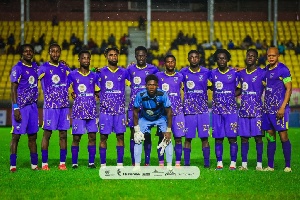Business News of Thursday, 5 June 2025
Source: www.ghanawebbers.com
Granted bail but not released: Implications on the 48-hour rule

This article discusses a legal question regarding the 48-hour rule in Ghana. It asks if this rule applies when a suspect is granted bail but cannot meet the conditions. Specifically, can we say that such a person has been "released"?
What is Bail?
Bail allows temporary release of a criminal suspect from custody. This occurs pending further investigation or trial. It does not determine guilt or innocence. Instead, it balances state interests and individual rights.
In Ghana, there are two types of bail: police bail and court bail. Police bail is granted by institutions like the police or the Office of the Special Prosecutor. Court bail is given by a judge before whom the suspect appears.
The main purpose of bail is to ensure suspects appear for investigations or trials. When deciding on bail, authorities must consider if the accused will show up in court.
Understanding the 48-Hour Rule
Article 14(3) of Ghana's Constitution states:
“A person arrested must be brought before a court within forty-eight hours.”
This rule applies to anyone who remains detained without being released. It does not matter if they were denied bail or granted it but cannot meet conditions.
The 48-hour rule prevents arbitrary detention without judicial oversight. It protects personal liberty under Article 14(1) of the Constitution.
Historically, Ghana faced issues with arbitrary arrests and prolonged detentions before 1992. The framers of the Constitution aimed to involve judges early in detention cases.
The rule ensures no one stays in custody longer than 48 hours without court approval.
Does the Rule Apply to Those Granted Bail?
If someone is granted bail but cannot meet conditions, have they been released? My view is that the 48-hour rule still applies to those in continued detention.
Granting bail does not equal release from custody. A person remains detained until they fulfill their bail conditions.
Even after meeting these conditions, authorities must take steps to release them. If conditions are unmet, being granted bail means nothing; they remain under custody.
Article 14(3) mandates that suspects must be brought to court within 48 hours unless released. No institution can keep someone beyond this period without judicial authority.
It doesn't matter why someone remains detained; whether due to inability to meet conditions or otherwise, they must be presented in court within 48 hours.
If an arresting institution grants excessive terms for bail and keeps someone longer than allowed, it violates Article 14(3). The law requires such individuals be brought before a judge for assessment of fairness regarding their bail terms.
Continued detention beyond this timeframe infringes on constitutional rights and may lead to legal action for redress.
Conclusion
In Ghana, the 48-hour rule protects individual liberty against state power abuse during arrests and detentions. Its application does not depend on whether police grant bail but rather on actual release from custody.
Merely granting bail does not mean someone has been released. If an individual remains detained after being granted bail, then Article 14(3) has been violated.
Without this provision's enforcement, institutions could impose harsh terms indefinitely detaining suspects at will.










